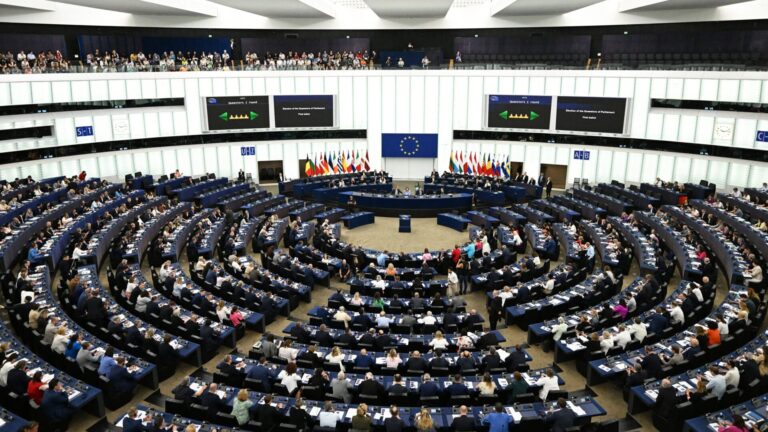The law on Hungarian judicial reform was adopted by parliament on 3 May, as Hungary rushes to unlock the frozen EU funds. The European Commission has given its de facto assent to the legislative changes, which means that there is now every prospect of the locked funds being finally disbursed.
The fate of a sum of 13.2 billion EUR is at stake in the political and legal debate between the European Commission and the government of Hungary. Parts of the regular EU cohesion and post-COVID recovery funds are being withheld, as the Commission has issues with the state of the rule of law in Hungary. The new law, to enter into force on 1 July, aims to resolve the deadlock.
The new legislation is in fact a package that amends several laws
and is explicitly tailored to address the concerns of the European Commission, as also stated by its title. For instance, it expands the competences of the National Judicial Council, the representative body of judges, and provides guarantees that its budget cannot be withdrawn. The law in fact creates a separate budget for the National Judicial Council, thus separates it from the National Office for the Judiciary.
Furthermore, the package also reforms certain procedures regarding the Constitutional Court and the Supreme Court, in order to shield them from political influence. For instance, the President of the Supreme Court, according to the new law, could only designate a person for the post of vice-president with the consent of the Council. The National Judiciary Authority would also need to consult with the Council, before making decisions in general. Conditions as to who can be nominated for the position of president will also be made stricter, and a term limit will be set for the post. Another important part of the reform is the abolishment of the ability of the government to challenge court sentences at the Constitutional Court.
‘If the judiciary independence case is settled, it unlocks the huge majority of the cohesion programs,’
EU Budget Commissioner Johannes Hahn told a group of journalists on 2 May. Hahn also visited Budapest and met with Prime Minister Viktor Orbán.
If the European Commission accepts the changes, the green light can be given to releasing the EU funds. POLITICO quoted anonymous sources as saying that the Commission had assented to the legal changes proposed by the Hungarian government before the package was passed. This claim was also underpinned by a celebratory Facebook post by Justice Minister Judit Varga as well.
In December, the Commission held back 22 million EUR of funds from Hungary, claiming the government had failed to comply with the EU charter on fundamental human rights. If the conflict over the judiciary is solved, that can unlock 13.2 billion, while the rest would remain blocked on other grounds. The remaining portion can be disbursed if Hungary addresses the corruption- and human rights-related concerns of the Commission.
Despite the government’s efforts to address the concerns, critics still raise issues. For instance, the Helsinki Committee of Hungary noted that the government submitted the amendments to parliament in the last minute, in order to avoid real debate on its content. According to the organisation, this also goes against the rules of the Hungarian parliament. The Helsinki Committee also pointed out other apparent shortcomings of the legal package. For example, the amended regulations do not rule out in principle the president of the Supreme Court and of the Constitutional Court being same person, and it does not make it easier to file appeals with European higher courts.
However, public announcements, anonymous sources, and leaks from negotiations suggest that the European Commission seems to be satisfied with the changes, so most likely the Hungarian government has managed to overcome the last hurdles in unlocking the much-needed EU sources.








